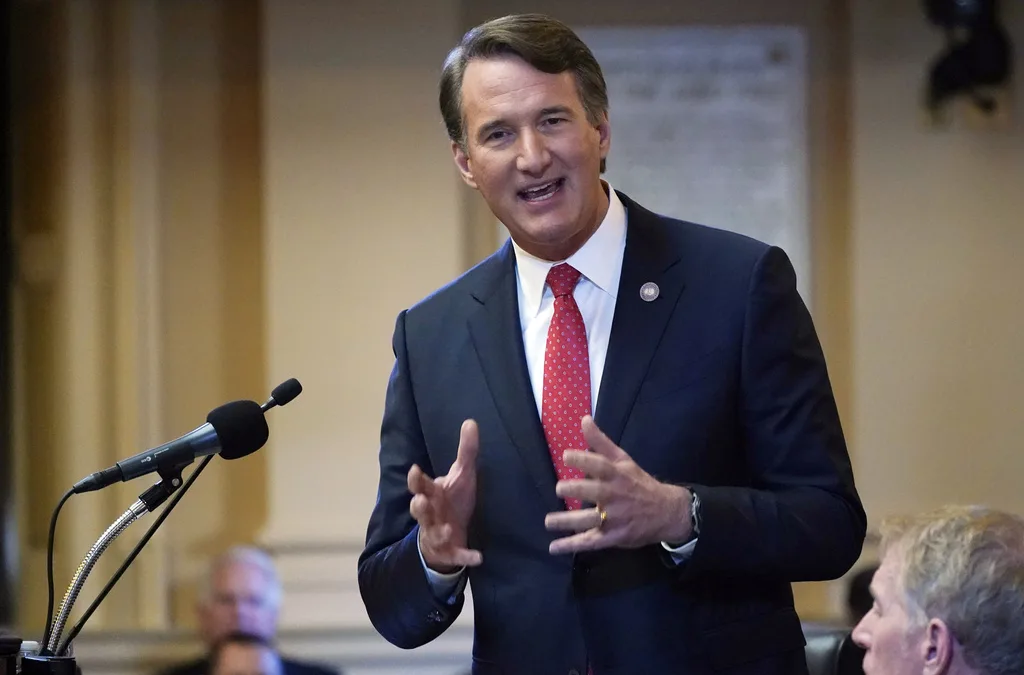
In this April 6, 2018, file photo, Supreme Court Justice Ruth Bader Ginsburg applauds after a performance in her honor after she spoke about her life and work during a discussion at Georgetown Law School in Washington. The Supreme Court says Ginsburg has died of metastatic pancreatic cancer at age 87. (AP Photo/Alex Brandon, File)
Ginsburg’s VMI opinion opened doors for women, highlighted inequality
LEXINGTON-She was a titan of the law, a lawyer who won landmark cases before the Supreme Court and eventually served on it. Ruth Bader Ginsburg, who passed away Friday at age 87, helped shape America’s laws in multiple ways for more than 40 years. She broke barriers as the first female tenured professor at Columbia Law School, co-founded the Women’s Rights Project at the ACLU and served on its board of directors. And in Virginia, Ginsburg’s remembered for helping to open the Virginia Military Institute to women cadets.
Less than three years after being appointed to the Supreme Court, Ginsburg delivered the majority opinion in United States vs. Virginia. By a 7-1 vote, the court struck down VMI’s male-only admissions policy, stating it violated the Fourteenth Amendment’s Equal Protection Clause. At the time, Virginia argued women couldn’t handle the military training. Instead, the state proposed a separate program for women. As a result, Mary Baldwin College set up the Virginia Women’s Institute for Leadership. However, Ginsburg pointed out the VWIL was not equal to VMI. Women wouldn’t get the same military training, she argued. They also wouldn’t get the same facilities, courses, faculty or opportunities offered to VMI graduates.
“The VWIL program is a pale shadow of VMI in terms of the range of curricular choices and faculty stature, funding, prestige, alumni support and influence,” she wrote.”Women seeking and fit for a VMI-quality education cannot be offered anything less, under the Commonwealth’s obligation to afford them genuinely equal protection.”
She pointed to the ruling in Sweatt vs. Painter. In the 1950 case, the Supreme Court said segregated schools in Texas were unconstitutional. A newly formed black law school didn’t offer the same benefits as the state’s prestigious white law school. It was the same in VMI’s situation, Ginsburg wrote.
What Happens to Ginsburg’s Court Seat?
On Friday, Sen. Mark Warner thanked Ginsburg for a life spent fighting for the most vulnerable and championing equality for all.
“Our nation has lost a giant,” Warner wrote. “History will remember you as a trailblazer and a voice for liberty and equality.”
Warner and his colleagues in the US Senate play a key role in determining Ginsburg’s successor on the Supreme Court. Under the law, the president chooses a nominee and the Senate votes on that person. Senate Majority Leader Mitch McConnell made it clear Friday night that the Senate will hold a vote on President Trump’s nominee. This contrasts with McConnell’s own position in 2016. President Barack Obama nominated Merrick Garland to the Court in March, after the death of Antonin Scalia. McConnell refused to hold a vote, because it was an election year. Garland’s nomination lasted 293 days before expiring Jan. 3, 2017.
Now Republicans currently hold a 53-47 majority in the Senate. As the nomination only requires a simple majority, it could even be a 50-50 tie. In that case, Vice President Mike Pence casts the deciding vote. It wasn’t always like this. Until 2017, the Senate needed 60 votes to approve a Supreme Court nominee. McConnell changed the rules to require a simple majority, as Democrats threatened to filibuster after Garland’s nomination expired.
‘Her Loss Leaves a Void’
Multiple Virginia lawmakers reflected Friday on how Ginsburg helped shape America’s legal system. Warner’s fellow Virginia senator Tim Kaine paid tribute to the woman’s efforts and the legacy she leaves behind.
“Justice Ginsburg’s legacy lies in a legal system far fairer than the one she found as one of only nine women in her first-year Harvard Law class,” Kaine said. “As a litigator, she rid our country of statutes that discriminated against women who were breadwinners and men who were child-rearers. As a justice, her majority opinions opened Virginia’s last all-male public school to women and freed people with disabilities from the isolating confines of institutions. Just as famously, she was uncompromising when the Court erred on issues of equality and fundamental rights, penning dissents that sharply defended the Voting Rights Act and women’s access to reproductive healthcare, all while reminding us, “you can disagree without being disagreeable.”
Virginia Gov. Ralph Northam echoed Kaine’s statements. He added Ginsburg’s passing leaves a void, both on the Court and in the country.
“She was a giant on the court, a brilliant legal mind, and an unwavering beacon in the fight for equal justice and gender equity,” Northam said. “Justice Ginsburg’s eloquence and passion made the world better and fairer—that includes ensuring my alma mater, the Virginia Military Institute, admitted women as cadets. Her loss leaves a tremendous void on the Court and in this country. May her legacy in the pursuit of justice live on, and may her memory be a blessing.”
Politics

Opinion: The problem with Youngkin’s Charter-Lab schools push in 2024
The Problem Governor Glenn Youngkin introduced 233 amendments to the bipartisan budget so it was hard to know how to assess his budget–for example,...

What to know about Trump’s legal issues
Over the past year, former president Donald Trump has become the center of not one, not two, not three, but four criminal investigations, at both...
Local News

Virginia verses: Celebrating 5 poetic icons for National Poetry Month
There’s no shortage of great writers when it comes to our commonwealth. From the haunting verses of Edgar Allan Poe, who found solace in Richmond's...

Join the fun: Recapping Family Literacy Night’s storybook adventures
When’s the last time you read a book aloud with a loved one? If it’s difficult to answer that question, then maybe it’s time to dust off that TBR...




